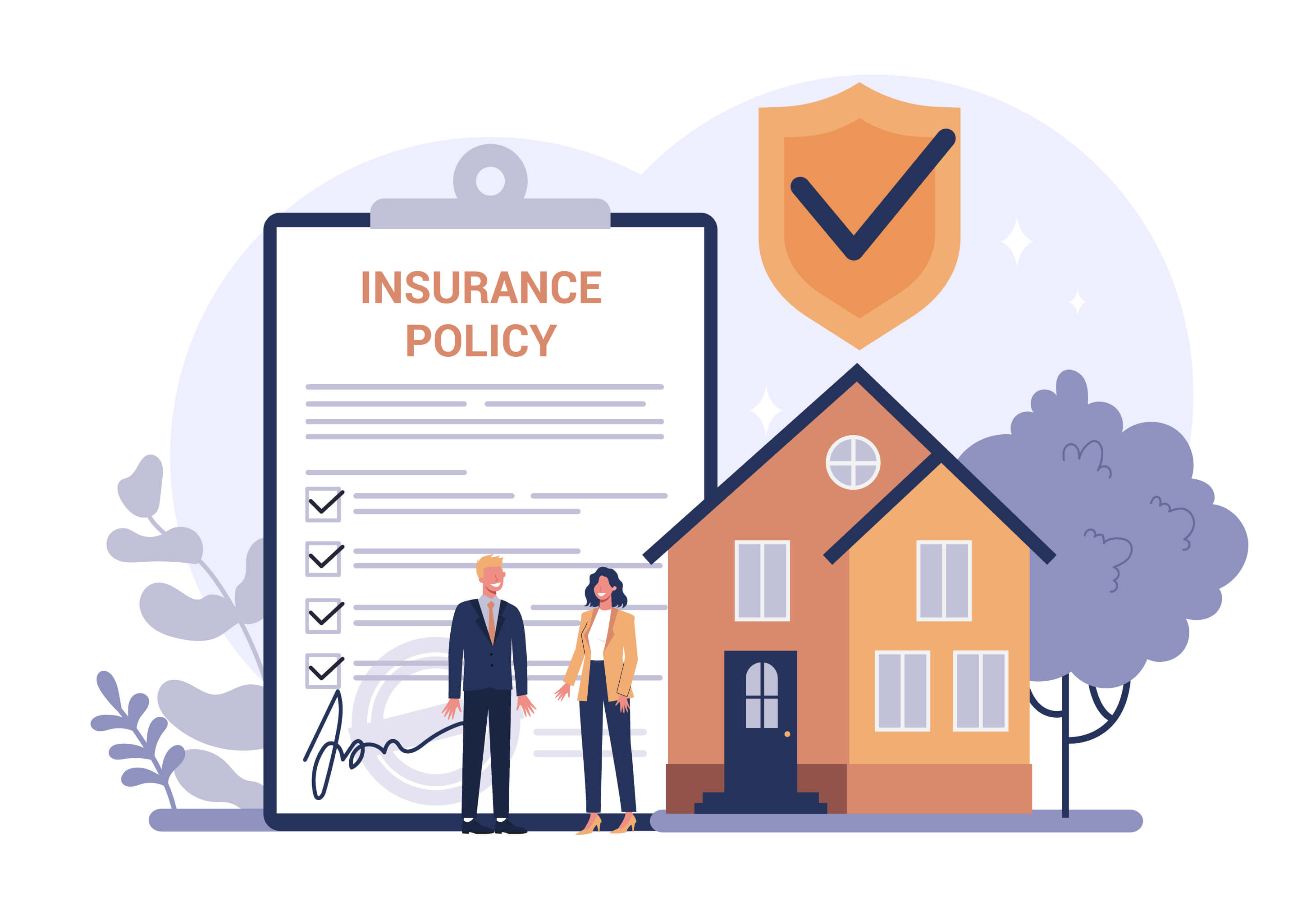Simplify Your Home Insurance Quote: What Info You Need to Have Ready
Getting a home insurance quote might seem daunting, but with the right information at your fingertips, the process can be smooth and stress-free.
Let’s walk through everything you need to have ready, making the journey easier and more rewarding in finding the best coverage for your home.
1. Contact Information for All Homeowners and Residents

When starting a home insurance quote, you'll need to provide the full names of all homeowners and residents. This includes anyone living in the home, even temporarily. You'll also need to share how long each person has lived at the residence and their marital status.
Additionally, if you or any of the residents run a business from home, this is important information to disclose. Some insurers may have different policies or offer specific coverage for home-based businesses. And don’t forget to mention any pets! Their presence can influence your insurance policy.
Having these details on hand helps the insurer understand who is living in the house and if any specific risks or coverage needs apply to those individuals. It’s a small step that makes a big difference in tailoring your policy.
2. Insurance History
Your insurance history plays a crucial role in determining your quote. Be prepared to provide details of any existing homeowners policy. This includes the name of your current insurer, your policy number, and the coverage limits of your current policy. If you have a mortgage, include your mortgage provider's details as well.
Additionally, you’ll need to disclose any prior claims you’ve made. This history helps insurers assess the likelihood of future claims. While past claims might increase your premium, it’s always best to be upfront—honesty ensures you get accurate coverage.
3. House Details
Now, let’s get into the nitty-gritty of your home. Insurers will ask for specific details about your house to determine the cost to rebuild it if necessary. Here’s what you need to have ready:
- Year Built: Knowing when your home was constructed gives insight into its overall condition and any potential risks associated with older properties.
- Roof Type and Age: Different roofing materials have varying lifespans and resilience to weather conditions. The age of your roof also factors into potential risks.
- Style of Home: Is your home a bungalow, a two-story house, or maybe a ranch? The architectural style affects rebuilding costs.
- Exterior Material: What is your home made of? Whether it's brick, wood, or vinyl siding, this impacts your insurance.
- Square Footage: The size of your home directly influences the cost to insure it.
- Number of Bathrooms and Fireplaces: The more features your home has, the more it might cost to repair or replace, influencing your policy.
Providing accurate details ensures that your policy covers the full cost of rebuilding or repairing your home in case of a loss.
4. Improvements
Have you made any significant upgrades to your home since you purchased it? Insurers will want to know. This includes adding a new roof, upgrading your HVAC system, finishing the basement, or remodeling the kitchen. These improvements can increase your home’s value and, therefore, the cost to insure it.
Improvements aren’t just about aesthetics—they also affect safety and functionality. For example, upgrading to a more durable roof could reduce your premium. Keep a list of all major upgrades and the dates they were completed. This helps ensure that your coverage aligns with the current value of your home.
5. Safety Devices

Good news: having safety devices in your home can lead to discounts on your home insurance! Insurers often offer reduced rates for homes equipped with alarm systems, fire sprinklers, and smart home technology. If you’ve installed any of these devices, be sure to mention them.
Not only do these features make your home safer, but they also make you a lower risk to the insurer. And that can mean savings for you. Whether it's a simple smoke detector or a full-blown security system, it’s worth noting.
6. Who Lives There and Their Contact Details
This ties in with the contact information section but expands on it slightly. You’ll need to provide the names and details of everyone living in the home, including children and extended family members. Insurers use this information to assess risk based on the number of occupants and their activities within the home.
If you have roommates or tenants, that’s important to disclose as well. Different coverage may be needed if you’re renting out part of your home, so make sure all living arrangements are clear from the start.
7. Insurance Claim History for the Property
Apart from your personal insurance history, insurers also look at the claims history for the property itself. Even if you’re a new homeowner, prior claims made on the house can impact your quote. This information helps the insurer understand any recurring issues or risks associated with the property.
For example, if there’s been a history of water damage claims, the insurer might consider the property a higher risk. Being aware of this history can help you make informed decisions about your coverage needs.
8. Details of the Property

While we’ve already covered some aspects of your home, it’s worth diving deeper into the specific details that insurers will ask for:
- Construction Materials: Beyond the exterior, what are your walls, floors, and ceilings made of? This affects how your home withstands various risks.
- Number of Bedrooms and Bathrooms: Again, the more rooms, the higher the potential cost to repair or replace.
- Lot Size and Additional Structures: Do you have a detached garage, shed, or pool? These extras may require additional coverage.
Having all of this information ready ensures that your quote accurately reflects the true value of your property.
9. Any Renovations or Upgrades That Increase the Home's Value
If you've made any renovations that significantly boost your home’s value, it’s essential to mention these during the quoting process. This could include a home addition, new flooring, or high-end appliances.
Renovations can increase your home’s replacement cost, so updating your insurer ensures that your policy covers these enhancements. It’s all about making sure your investment is fully protected.
10. Safety Devices Installed
We mentioned safety devices earlier, but it’s worth emphasizing again. Whether it’s a state-of-the-art alarm system or simple smoke detectors, these features are key to lowering your insurance costs.
In today’s tech-savvy world, smart home technology also plays a role. If you have devices that monitor for fire, carbon monoxide, or break-ins, mention them. These not only offer peace of mind but also make you a more attractive candidate for discounts.
Final Thoughts
Having this information ready will make the quoting process quicker and smoother. Insurers need specifics about your home and its occupants to assess risks and costs accurately. By providing detailed and accurate information upfront, you ensure that your coverage matches your current needs and that you’re getting the best possible rate.
Remember, things like upgrades and safety devices are important to ensure that your policy reflects the current value of your home and that you’re taking advantage of any discounts available. With everything in order, you’ll be well on your way to finding the perfect home insurance policy that gives you peace of mind.
LATEST

Last updated: Sep 10, 2024

Last updated: Sep 10, 2024

Last updated: Aug 19, 2024

Last updated: Aug 31, 2024

Last updated: Sep 10, 2024

Last updated: Aug 31, 2024

